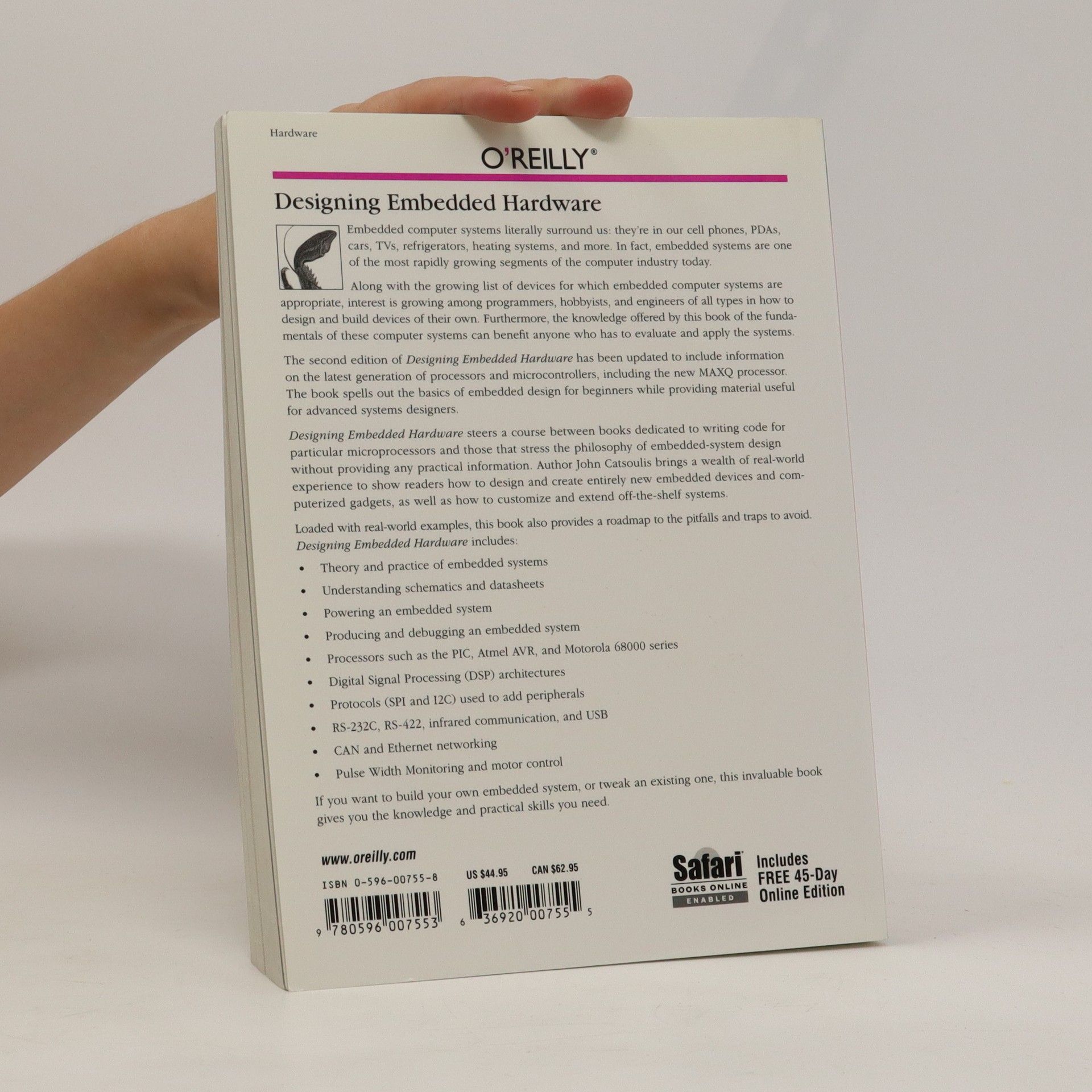Sold out but wanted!
Parameters
- 396 pages
- 14 hours of reading
More about the book
Designing Embedded Hardwaresteers a course between those books dedicated to writing code for particular microprocessors, and those that stress the philosophy of embedded system design without providing any practical information. Having designed 40 embedded computer systems of his own, author John Catsoulis brings a wealth of real-world experience to show readers how to design and create entirely new embedded devices and computerized gadgets, as well as how to customize and extend off-the-shelf systems
Book purchase
Designing Embedded Hardware, John Catsoulis
- Language
- Released
- 2005
- product-detail.submit-box.info.binding
- (Paperback)
We’ll email you as soon as we track it down.
Payment methods
We’re missing your review here.





